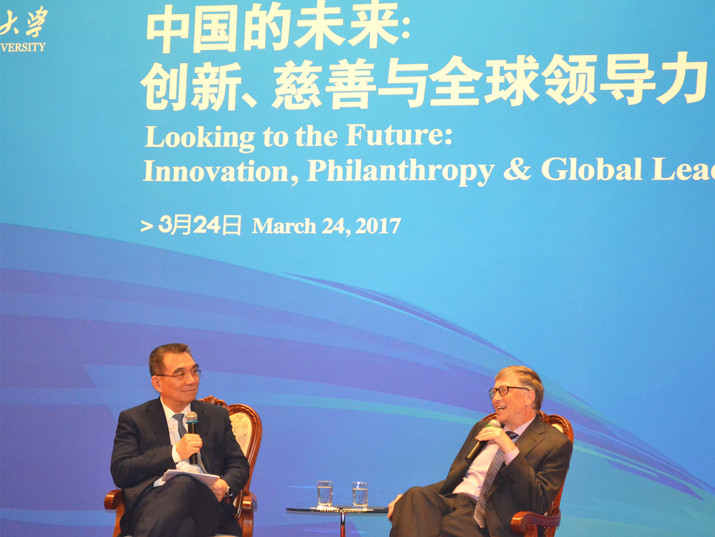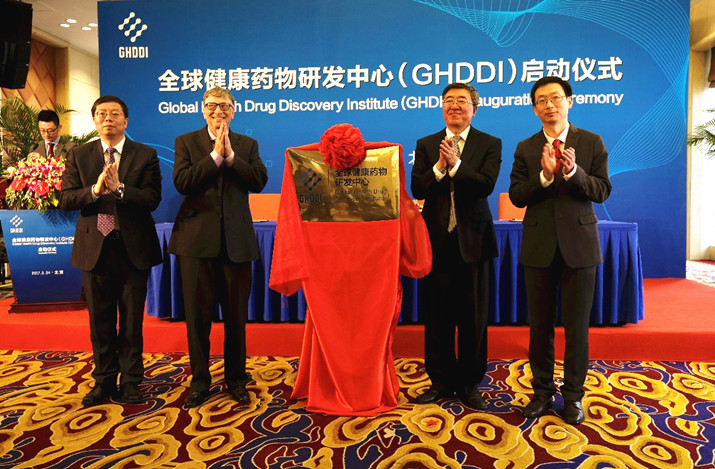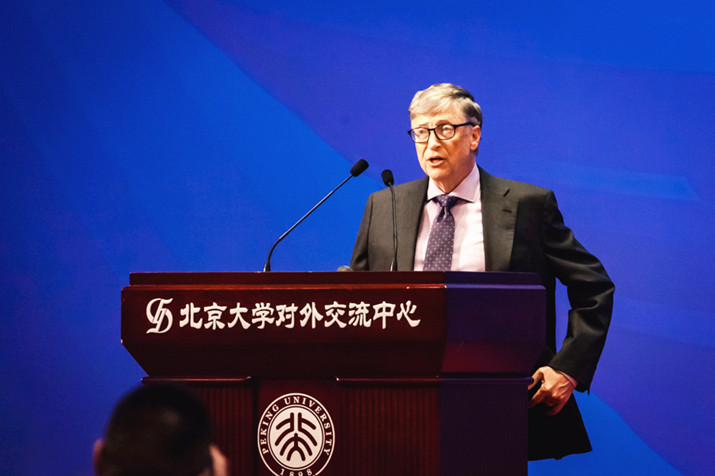|
||||||||||
| Home Nation World Business Opinion Lifestyle ChinAfrica Multimedia Columnists Documents Special Reports |
|
||||||||||
| Home Nation World Business Opinion Lifestyle ChinAfrica Multimedia Columnists Documents Special Reports |
| China |
| Sharing Experience Learned |
| China uses its experience to usher in a new tomorrow for Africa |
| By Liu Jian | Web Exclusive ·2017-03-28 |

China isn't just striving to reach new heights at home. It is using its own experience fighting poverty and disease to help other countries tackle similar challenges. Now, China is using its experience to help usher in a new tomorrow for Africa, said Bill Gates, Co-Chair of the Bill & Melinda Gates Foundation (BMGF).
He said that in the speech titled Looking to the Future: Innovation, Philanthropy and Global Leadership in Peking University on the evening of March 24, during his recent visit to Beijing.
Gates said no other country has accomplished what China has achieved in the last few decades - breaking the relentless cycle of poverty and disease for hundreds of millions of people while modernizing its economy at a scale and speed unprecedented in human history.
"China has made a smart choice in tripling its commitment to African development," he said, adding that China has long understood that helping other countries out of poverty creates a more stable and secure world for people everywhere.
During his speech, Gates shared his observations on China's achievements in leveraging innovation to tackle global health and development challenges, and called on the younger generation to take up the responsibility of driving progress forward in the future.

Addressing global health challenges
Gates pointed out that one area China has an incredible chance to lead in is in reducing and eventually eradicating malaria. "To achieve the goal of global eradication, we need to build on Professor Tu Youyou's discovery of artemisinin and develop more powerful tools - like a single-dose cure and better ways to block transmission of malaria from mosquitos to humans," he said. Tu won the 2015 Nobel Prize for Physiology or Medicine for her efforts in discovering artemisinin, a drug that has significantly reduced the mortality rates for patients suffering from malaria.
China has the potential to develop these new high-impact solutions at a cost that developing countries can afford, said Gates. He told the audience that it can be started today by controlling and eliminating malaria in places like the Mekong River basin and in Africa.
"Drawing on lessons learned from its own experience, China can help ensure that every family has bed nets to protect them from infection. And it can help countries strengthen their health and disease surveillance systems to better diagnose, treat, and prevent future cases of malaria," he said.
On the afternoon of March 24, Bill Gates attended a ceremony marking the launch of the Global Health Drug Discovery Institute (GHDDI), which was cofounded by Tsinghua University and BMGF in Beijing.
"With its rich pool of talented scientists and its capacity to develop new drugs and vaccines, China was a clear choice for us to locate a new GHDDI," said Gates, adding that it will help speed the discovery and development of new lifesaving medicines. Its research will play a major role in the global fight against neglected diseases that are prevalent in many developing countries, including China, he said.

Driving China-Africa agricultural cooperation
The second area where Gates believe China can drive global progress is agriculture. He praised the agricultural innovation of Yuan Longping, a Chinese crop scientist who developed hybrid rice varieties that increased crop yields by 20 percent.
"China's continuing advances in rice could be of enormous benefit to millions of smallholder farmers in Sub-Saharan Africa, many of whom today are barely growing enough to feed their families and will face more difficult weather conditions in the decades ahead," he said.
Since 2008, BMGF has been supporting work by the Chinese Academy of Agricultural Sciences and others to develop new varieties of rice. When those new rice varieties are crossed with domestic varieties in countries like Senegal, Tanzania, and Rwanda, they will result in high-yielding, stress-tolerant crops that will boost farmer yields and income.
On the morning of March 24, BMGF and China's Ministry of Agriculture signed a memorandum of understanding in Beijing, which bolsters cooperation between them on a broad range of areas to address the local needs, improve agricultural productivity and foster sustainable agriculture in Sub-Saharan African countries, with the ultimate aim of helping them achieve their poverty alleviation goals.
In his speech, Gates also spoke highly of China's innovative financing mechanisms like the China-Africa Development Fund, which encourages Chinese companies to invest in Africa and strengthens Africa's economic capacity.
Apart from health and agriculture, there are also a lot of opportunities in sectors like energy and technology, in which there are exciting opportunities, said Gates. He called on Chinese young people to use their education, passion and opportunities to unlock more amazing progress - for both China and for the world.
|
||
| About Us | Contact Us | Advertise with Us | Subscribe |
| Copyright Beijing Review All rights reserved 京ICP备08005356号-5 京公网安备110102005860号 |